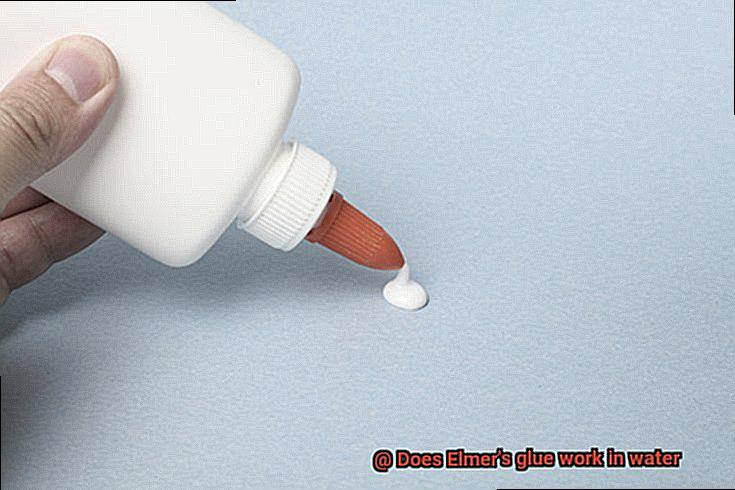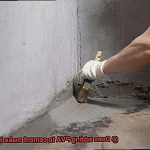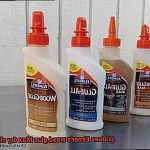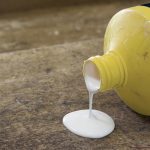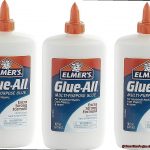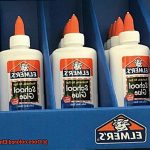Calling all crafters and DIY enthusiasts. Are you ready to unlock the full potential of Elmer’s glue? We’ve all used it on various surfaces, but have you ever considered mixing it with water? The question remains: does Elmer’s glue work in water and will your project still be a success?
Let’s dive in and explore this topic. Elmer’s glue is designed to be water-soluble, which means it should work well with water. However, the real question is, how much water do you need to dilute it? Should the water be warm or cold? And can it still adhere to surfaces in the same way? These are all important things to consider.
Interestingly, the answer depends on what type of project you’re working on. Elmer’s glue can be mixed with varying amounts of water to create different consistencies, making it a versatile adhesive for a range of DIY activities. But beware. Knowing when to use diluted glue versus undiluted glue is crucial to avoid any mishaps or disasters.
So, whether you’re creating a school project or repairing a household item, understanding how Elmer’s glue works in water can make all the difference. Stay tuned as we uncover everything you need to know about this fantastic adhesive.
What is Elmer’s Glue?
Contents
Elmer’s Glue is a beloved brand of adhesive that has been trusted for over 70 years in households and classrooms alike. This versatile glue comes in several different types, including white glue, clear glue, and school glue.
So what exactly is Elmer’s Glue made of? The answer lies in its water-based formula, which includes a combination of polyvinyl acetate (PVA) resin and various additives. PVA resin is a type of plastic that forms a robust bond when it dries, while the additives can include preservatives, stabilizers, and thickeners.
You might be wondering if Elmer’s Glue can withstand water exposure. The answer is yes – Elmer’s Glue can work in water. This is because the PVA particles in the glue are suspended in water. Once the glue is applied to a surface, the water evaporates, leaving behind a sturdy bond between the two surfaces.
However, not all types of Elmer’s Glue perform equally well in water. For instance, Elmer’s school glue, which prioritizes safety for children, may not hold up as well when exposed to water. On the other hand, Elmer’s Carpenter’s wood glue is specifically designed to be waterproof and can be used for outdoor projects.
To get the most out of Elmer’s Glue, it’s important to ensure that the surface you’re applying it to is clean and dry before application. If you need to use Elmer’s Glue in a wet environment or for outdoor projects, choose a waterproof or weather-resistant variant for optimal results.
Does Elmer’s Glue Work in Water?
Elmer’s glue, also known as white glue or school glue, is a popular adhesive that’s widely used in various crafting and household projects. However, when it comes to water-based projects, the answer isn’t as straightforward. The suitability of Elmer’s glue in water-based projects depends on various factors such as the project type, the amount of water involved, and the specific type of Elmer’s glue being used.
Generally speaking, regular Elmer’s glue is not ideal for use in water-based projects. This is because the water-soluble polymer used in its composition dissolves when exposed to water, resulting in a weak and ineffective bond.
There are still some types of Elmer’s glue that are designed to work exceptionally well in wet conditions.
Elmer’s ProBond Max is a specially formulated waterproof glue that contains a stronger adhesive formula capable of withstanding exposure to water and other liquids without breaking down. It provides a reliable and robust bond even in the presence of moisture.
However, it’s essential to note that even with waterproof glues like ProBond Max, controlling the amount of water involved in your project is crucial. Too much water can dilute the glue and weaken its adhesive properties. Hence, it’s imperative to be mindful of your water usage and adjust accordingly.
Types of Elmer’s Glue and Their Water Resistance
With over 70 years of experience, this popular brand offers a variety of glues with unique water resistance levels to suit your needs.
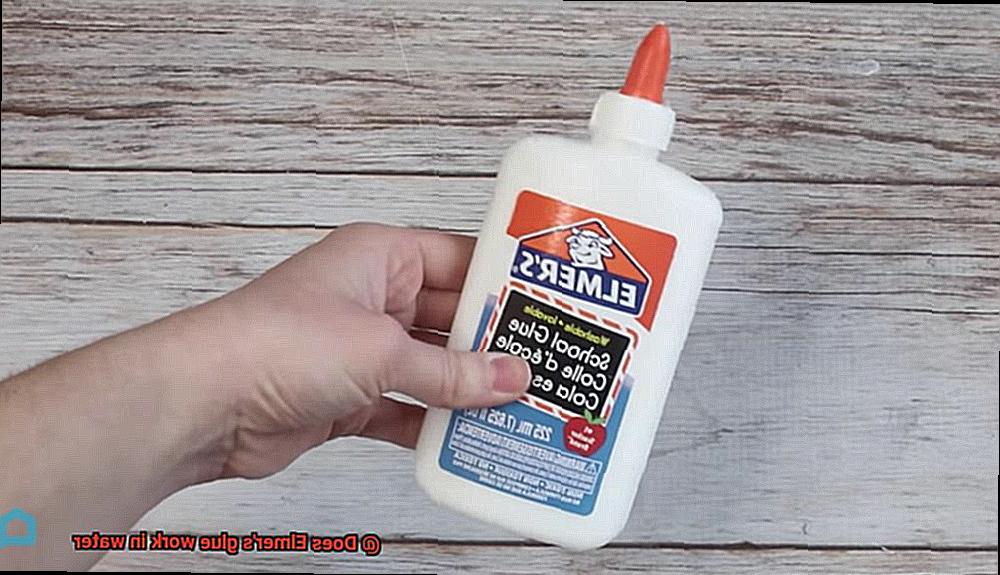
First up is the classic white school glue, also known as PVA glue. This type of glue is water-soluble and can be easily diluted with water. While it may not be entirely waterproof, it does have some water-resistant properties. When exposed to water, the glue may become slightly tacky but will not dissolve or lose its bonding strength. So if you need a reliable adhesive that can withstand some moisture, white school glue is a great option.
For woodworking projects, Carpenter’s wood glue is the way to go. This type of glue is specifically designed for wood and offers strong water resistance. It can withstand exposure to moisture and humidity without breaking down, making it perfect for outdoor projects or items that will be exposed to moisture. Plus, it dries clear and can easily be sanded or painted over once it has dried.
If you’re in need of fast and strong bonding, Elmer’s super glues are a great choice. However, keep in mind that these are not typically water-resistant and may break down when exposed to moisture. But don’t fret. Some super glues like the Elmer’s Max Impact formula come with added water-resistant properties to ensure a reliable hold even in damp conditions.
Lastly, Elmer’s offers a range of clear glues for various applications. These are water-soluble and may not be entirely waterproof, but some formulas like the Elmer’s Clear Glue All have improved water resistance to protect your project from moisture damage.
It’s important to choose the right type of Elmer’s glue based on your project’s intended use and materials involved. While some types offer better water resistance than others, none are entirely waterproof. So be cautious when exposing your project to water and ensure you’ve selected the right glue for the job.
How to Use Elmer’s Glue in a Wet Environment
Perhaps you’re thinking about using Elmer’s glue for a project that will be exposed to moisture, but you’re not sure if it’s the right choice. While Elmer’s glue is water-soluble, there are ways to use it effectively in wet environments. Here are five tips for using Elmer’s glue in a wet environment:
Choose the right type of glue
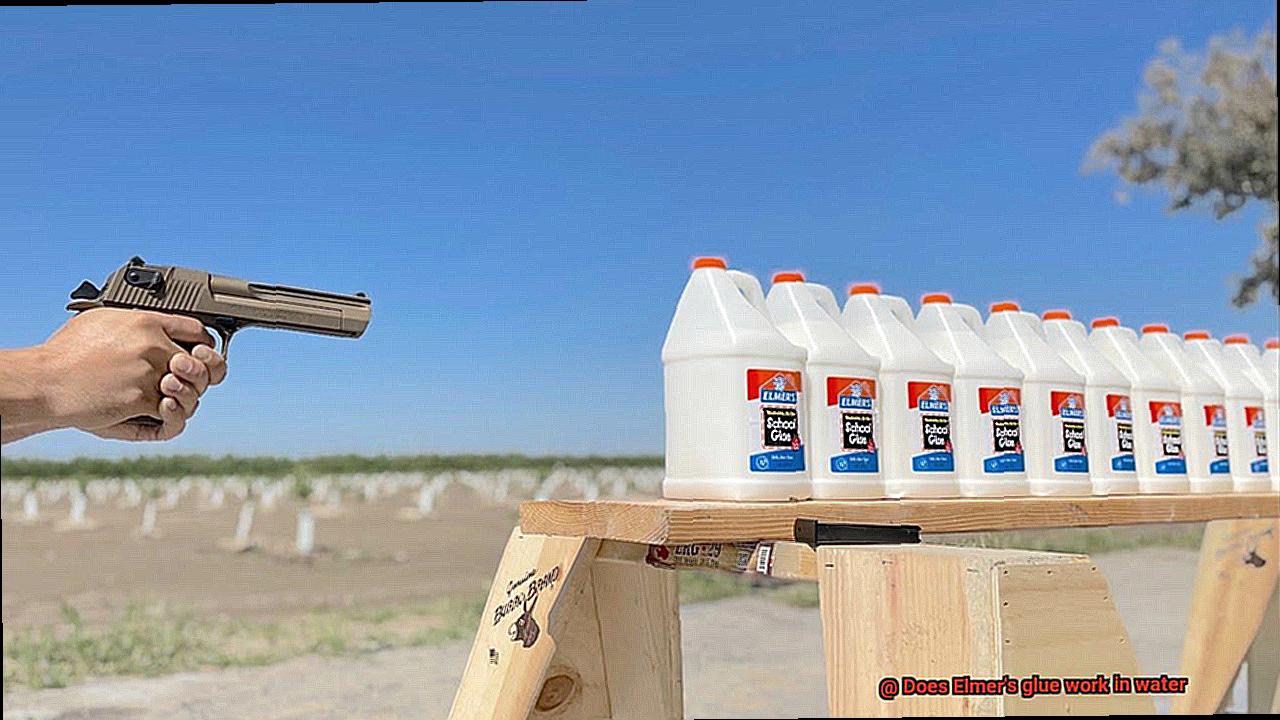
If you need to use glue in a wet environment, opt for a waterproof or water-resistant variant like Elmer’s Carpenter’s Wood Glue Max. This type of glue is specifically designed to hold up in damp conditions and can be used for a variety of projects.
Make sure the surface is dry
Before applying the glue, ensure that the surface you’re working on is as dry as possible. Use a towel or blow dryer to remove any excess moisture. This will help the glue adhere better and prevent it from breaking down too quickly.
Apply the glue correctly
When using Elmer’s glue in a wet environment, avoid applying too much at once. Applying too much can cause it to take longer to dry and may result in it breaking down more quickly when exposed to water.
Use a sealant
After the glue has dried, apply a waterproof sealant on top of it to create an extra layer of protection against water damage. There are many types of waterproof sealants available on the market, so be sure to choose the one that best suits your project.
Consider other adhesives
While Elmer’s glue can work well in some wet environments, it may not be suitable for all projects that will be exposed to water for an extended period of time. For example, if you’re working on an outdoor structure or piece of furniture, you may want to consider using a different type of adhesive that is specifically designed for use in wet environments.
Advantages and Disadvantages of Using Elmer’s Glue in Water
Elmer’s glue in water might be the answer. This popular adhesive boasts many advantages, including being resistant to moisture. Once the glue has dried, it won’t dissolve or come apart when exposed to water, making it ideal for projects that might get wet, such as DIY aquarium decorations or children’s art projects.
Another advantage of using Elmer’s glue in water is how easy it is to clean up. Spills are no problem since you can easily wash the glue off with water while it’s still wet. Additionally, Elmer’s glue is relatively affordable and versatile enough to be used for a wide range of projects, from paper crafts to woodworking.
However, there are some disadvantages to consider before using Elmer’s glue in water. First, the drying time can be lengthy, particularly when used in water. If you’re working on a project that requires quick results, this could be frustrating. Additionally, while Elmer’s glue is versatile, it might not be strong enough for heavy-duty projects or suitable for certain materials like metal or glass.
Lastly, over time, Elmer’s glue may yellow and become unsightly on certain materials such as white paper or fabric.
5l7ZPu9ne1o” >
Also Read: Is Elmer’s Glue Waterproof?
Conclusion
In summary, Elmer’s glue is a versatile adhesive that can be used for all sorts of DIY projects. However, when it comes to using it in water-based projects, the answer is not always straightforward. The outcome depends on various factors such as the type of project, the amount of water involved, and the specific type of Elmer’s glue being used.
While regular Elmer’s glue may not be ideal for use in water-based projects due to its water-soluble polymer composition, some types of Elmer’s glue are specifically designed to work exceptionally well in wet conditions. One such example is Elmer’s ProBond Max – a waterproof glue that contains a stronger adhesive formula capable of withstanding exposure to water and other liquids without breaking down.
But even with waterproof glues like ProBond Max, controlling the amount of water involved in your project is crucial. It’s also essential to choose the right type of Elmer’s glue based on your project’s intended use and materials involved.
Using Elmer’s glue in water-based projects has its advantages such as resistance to moisture and easy cleanup. However, there are also disadvantages such as lengthy drying time and limited strength for heavy-duty projects or certain materials like metal or glass.
In conclusion, understanding how Elmer’s glue works in water can make all the difference in achieving successful DIY projects.

